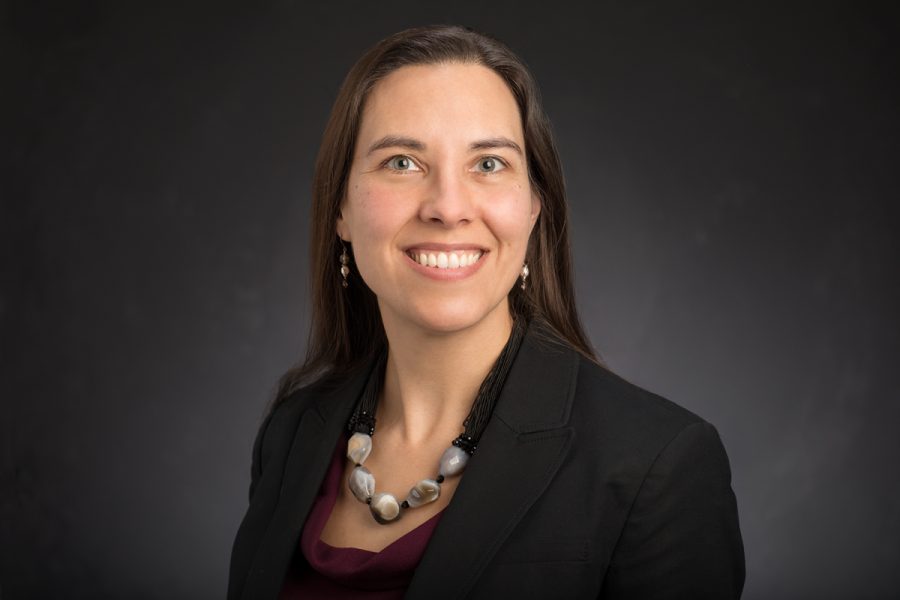University faculty members receive humanities fellowships
Photo Courtesy of Elizabeth Hoiem
Elizabeth Hoiem, professor of information sciences, was awarded The 2018 National Endowment for the Humanities (NEH) Fellowships along with other five University faculties. The Fellowship aims to support their authoring of books on a variety of topics.
Jan 18, 2018
The 2018 National Endowment for the Humanities (NEH) Fellowships have been awarded to six University faculty members to support their authoring of books on a variety of topics.
This year’s recipients include Craig Williams, D Fairchild Ruggles, Paul Kapp, Donna Buchanan, Elizabeth Hoiem and Candice Jenkins.
The NEH is an independent federal agency, and is one of the nation’s top sources for funding the humanities. This year, the NEH awarded $12.8 million in grants for a total of 253 fellowships.
According to theNEH website, the grant awards “support preservation and collections at small institutions, innovative digital projects for the public, and advanced humanities research.”
This fellowship is one of the most competitive humanities awards, with an average of 80 fellowships being awarded out to an average of 1,210 applicants according to the NEH’s data over the past five years.
Get The Daily Illini in your inbox!
“I knew that NEH fellowships provide excellent support for humanists who are writing books, but they are also very competitive,” Hoiem wrote in an email. “Working with my peers, I learned about all of the amazing projects pursued by humanists here at Illinois.”
Jenkins plans to use her fellowship to finish and revise her book, which is currently under contract with the University of Minnesota Press, she wrote in an email. Her book focuses on how the identity of the black middle class from 1980s to early 2000s is represented in fiction and the contradictions of being both middle class and black.
“This project helps us to see blackness and class status in a different way than it is typically seen, by recognizing through analysis of these texts that black people can be socially and economically privileged even as they still are subject to racial violence and also still deeply invested in racial belonging and community,” Jenkins wrote.
Hoiem wrote that she will use her fellowship to write a manuscript for a book and to conduct research at archives such as the Victoria & Albert Museum in England and Robert Owen’s school in New Lanark, Scotland.
Her book, “The Education of Things: Mechanical Literacy in British Culture, 1762-1860,”argues learning-by-doing offers “an empowering pedagogy for affluent children while justifying child labor as educational” by blurring the boundaries between educational play and work.
Hoiem said her work offers new perspectives on class, gender, race, politics and power in children’s lives, which makes it of interest to the NEH.
“According to their feedback, the reviewers were drawn to the interdisciplinary nature of the project and the eclectic range of texts and artifacts that I bring together,” Hoiem wrote. “My research seeks to expand what counts as children’s literature in order to honor families and children whose experiences are otherwise left out of history.”
Buchanan’s professional career has been driven by her passion for the Balkan music and music of the larger eastern European region, she wrote in an email.
Buchanan wrote that she is going to use the fellowship to write a book on bells in Bulgarian communities, which demonstrates how people inhabit the world aurally.
“Bells are something most people can relate to; they are a tool for marking time, can be visually and sonically beautiful, but also carry considerable symbolic weight,” Buchanan wrote.






